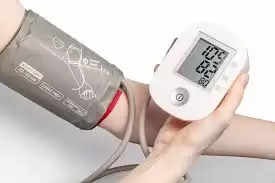
High blood pressure is a common problem all over the world. It mainly causes heart diseases, but did you know that it also affects your skin? Yes, skin is not just the outer covering of the body, but it is our largest organ, which reflects our health externally.
When high blood pressure affects blood flow and circulation, it hinders the supply of nutrients and oxygen to the skin. This can lead to common skin problems such as dryness or dullness of the skin and more serious conditions such as erythema and petechiae. Wound healing may also be delayed.
How does blood pressure affect the skin?
High blood pressure damages the skin by affecting blood flow and circulation. This causes the blood vessels to constrict, which reduces blood flow to the skin. As a result, immune cells are depleted and the skin becomes unable to regenerate or repair itself.
redness
Redness of the skin is a common symptom of high blood pressure, called erythema. This occurs when the veins near the surface of the skin dilate. This causes redness in the face, often described as a 'red' colour. This is seen in people whose high blood pressure is not under control.
Severe blood pressure
Severe high blood pressure that persists for a long time can cause thinning and weakening of the skin. This increases the risk of bruising or wounds and can also delay wound healing. High blood pressure has not been directly linked to skin diseases such as acne and psoriasis, but it is believed that it may aggravate these diseases.
High blood pressure not only affects the skin directly, but it can also show up on the skin if there are problems with other organs and systems of the body. Diabetes, kidney disease and heart disease – all of these can cause skin problems.
Therefore, it is important to control high blood pressure to protect skin health. Physical activity, weight control, reducing salt intake and avoiding alcohol and stress – all help control blood pressure. Also, proper skin care like using gentle cleansers, moisturizers and sunscreen is also important.
High blood pressure is a common problem worldwide. Although it primarily affects the heart and cardiovascular system, it also affects the skin.
High blood pressure is a common problem all over the world. It mainly causes heart diseases, but did you know that it also affects your skin? Yes, skin is not just the outer covering of the body, but it is our largest organ, which reflects our health externally.
When high blood pressure affects blood flow and circulation, it hinders the supply of nutrients and oxygen to the skin. This can lead to common skin problems such as dryness or dullness of the skin and more serious conditions such as erythema and petechiae. Wound healing may also be delayed.
How does blood pressure affect the skin?
High blood pressure damages the skin by affecting blood flow and circulation. This causes the blood vessels to constrict, which reduces blood flow to the skin. As a result, immune cells are depleted and the skin becomes unable to regenerate or repair itself.
redness
Redness of the skin is a common symptom of high blood pressure, called erythema. This occurs when the veins near the surface of the skin dilate. This causes redness in the face, often described as a 'red' colour. This is seen in people whose high blood pressure is not under control.
Severe blood pressure
Severe high blood pressure that persists for a long time can cause thinning and weakening of the skin. This increases the risk of bruising or wounds and can also delay wound healing. High blood pressure has not been directly linked to skin diseases such as acne and psoriasis, but it is believed that it may aggravate these diseases.
High blood pressure not only affects the skin directly, but it can also show up on the skin if there are problems with other organs and systems of the body. Diabetes, kidney disease and heart disease – all of these can cause skin problems.
Therefore, it is important to control high blood pressure to protect skin health. Physical activity, weight control, reducing salt intake and avoiding alcohol and stress – all help control blood pressure. Also, proper skin care like using gentle cleansers, moisturizers and sunscreen is also important.
 look news india
look news india